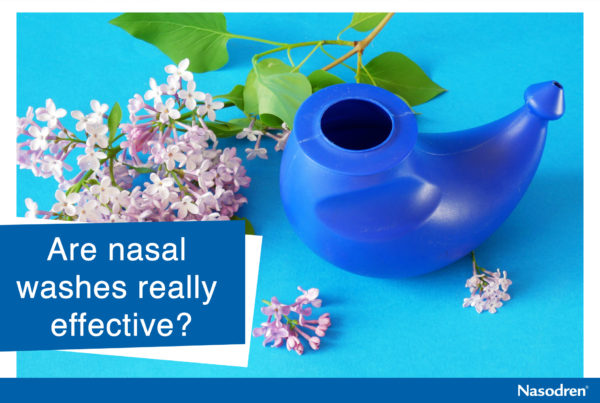There are four types of intranasal medications, known as nasal sprays. The medication may contain cromoglycate- a nasal mast-cell stabilizer, ipratropium- anticholinergics and / or natural extracts from plants. For instance, grapefruit seed extract nasal spray is effective for both acute and chronic sinusitis. Colloidal silver is also used in the sprays prescribed for both the conditions.
A nasal decongestant spray reduces nasal tissue swelling in the patients suffering from acute sinus infection. The nasal spray offers immediate relief from the congestion. However, do not use the spray for more than five days because congestion rebounds due to excessive usage. During rebound, initially, the spray shrinks the nasal tissues but then swelling reappears. This condition is referred to as rhinitis medicamentosa. Do not use vasoconstrictive nasal sprays for long, because abuse of the spray results in the rebound.
Afrin, an oxymetazoline hydrochloride nasal spray, is used to treat acute sinusitis. Afrin is administered 20 minutes prior to endoscopic frontal sinusotomy. Xylometazoline, a sympathomimetic decongestant, is a major ingredient of the spray that effectively treats allergic rhinitis. Some physicians also prescribe a decongestant nasal spray prior to computed tomographic (CT) scan.
A nasal steroid spray reduces inflammation slowly in chronic sinusitis. The nasal spray delivers a strong dosage of steroids on the affected nasal tissue surface. Daily use of the spray is must to get the desired results, but effect of the spray will be visible after a week or so. The spray may be used twice a day. The spray is safe to use over a long period. A steroid spray is administered after endoscopic frontal sinusectomy.
The topical corticosteroid nasal spray causes irritation because of fluorocarbon used to propel the steroid. Even contact with the tip of the spray can cause irritation. Thus, use of fluorocarbon-based propellants in the nasal spray has been banned since late 1990s.
A nasal antihistamine spray reduces nasal membrane’s response to inflammatory cells, but the spray may have some side effects. Incorrect use of the spray may lead to nose bleeding. The azelastine nasal spray, an antihistamine spray, is an innovative anti allergy treatment. The Astelin N. S. spray is useful to treat seasonal allergic rhinitis. Levocabastine spray is another example of the antihistamine spray.
A nasal saline spray reduces congestion by moisturizing the nasal cavity. Irrigate the nose with these sprays to open up the nasal passage without any side effects. The spray is used after endoscopic drainage of a subperiosteal orbital abscess.
Since nasal sprays are addictive, avoid its overdose or wrong usage, and consult the doctor before using the spray.








